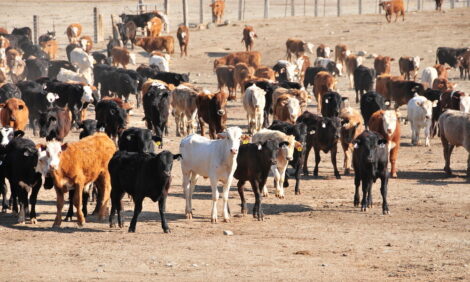



EU countries seek deal on watered down nature law
Some nations oppose new law on economic, other groundsEuropean Union countries' environment ministers struck a deal on Tuesday over a landmark bill to restore deteriorating natural habitats after watering down parts of the proposal and agreeing to find more EU funding to restore damaged environments, reported Reuters.
The EU proposal to turn around the ailing health of Europe's natural habitats - 81% of which are classed as in poor health - has sparked a fierce political debate, with EU lawmakers and some governments opposing the bill and questioning whether the EU is piling too much environmental regulation onto industry.
EU countries backed the bill but only after the European Commission, the bloc's executive, agreed to propose EU financial support for measures to revive nature, if it were found to be needed, according to a draft of the deal seen by Reuters.
Germany, Lithuania and Romania were among countries that had raised concerns over funding.
Countries also weakened parts of the Commission's original proposal.
One change would scrap an obligation to ensure that the health of mudflats, grasslands, forests and other habitats does not worsen, replacing it with an aim to "endeavour to put in place necessary measures" to prevent this.
Another would weaken targets to revive drained peatlands at the request of countries including Ireland, where dried bogs are farmed upon and peat used as fuel.
Irish climate minister Eamon Ryan welcomed the compromise, saying it gave hope that "the destruction of nature is not an inevitable certainty", while also not setting out any rules that would prevent countries from developing their economies.
Still, the densely-populated Netherlands opposed the deal, having raised concerns it would slow the expansion of wind farms and other economic activities.
"We can't do everything at the same time and in the same limited space," Dutch Nature Minister Christianne van der Wal said.
Political pushback
EU climate chief Frans Timmermans told reporters he was not worried by countries' tweaks to make the law more flexible. But he criticised lawmakers in the European Parliament who are trying to block the law and are refusing to negotiate.
EU countries and the European Parliament must both approve the final bill.
"It makes me really sad that some are trying to draw climate policy to the culture wars. Because then you create sort of a tribal opposition. And once you get into a tribal opposition, facts don't matter," Timmermans said.
The EU Parliament's biggest lawmaker group is leading a campaign to reject the law, arguing that making more space for biodiversity-boosting features on agricultural land would threaten food production.
More than 3,000 scientists have rejected those claims, but the law's future still looks shaky. A motion by EU lawmakers to reject the entire proposal last week failed by a razor-thin margin, ahead of a full EU Parliament vote in July.



